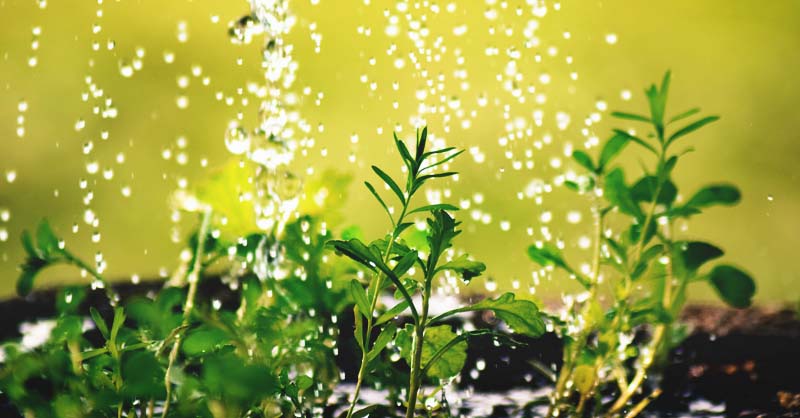Maintaining a thriving garden requires a delicate balance of care, attention, and just the right amount of water. As proud plant enthusiasts, we at Dynamic Landscaping understand the desire to provide your green friends with everything they need to flourish. However, there’s a common mistake many gardeners make that can actually hinder your plants’ growth and health – overwatering. In this blog, we’ll dive into the signs you’re overwatering your plants, the negative consequences it can bring, and how to rectify the situation for a lush and vibrant garden.
Signs You’re Overwatering Your Plants
Have you noticed that despite your best intentions, your plants seem to be struggling? That might be due to overwatering. Knowing the signs of overwatering can save your plants from unnecessary stress and help you adjust your care routine accordingly.
- Soggy Soil: If the soil feels constantly wet or soggy to the touch, even days after watering, it’s a clear sign of overwatering. Healthy soil should be moist but not waterlogged.
- Stunted Growth: Overwatering can lead to stunted, slow growth in your plants. The excess moisture suffocates the roots, preventing them from absorbing necessary nutrients and hindering overall development.
- Yellowing Leaves: When leaves start turning yellow, especially if the veins remain green, it’s an indication that your plant might be suffering from overwatering. The roots struggle to deliver nutrients to the rest of the plant.
- Gnats: These tiny flying insects are attracted to consistently moist environments. If you notice an increase in fungus gnats around your plants, it’s a sign that the soil is staying too wet.
- Mold Growth: Excess moisture provides an ideal breeding ground for mold. If you see mold or mildew on the surface of the soil or on the plant itself, it’s likely due to overwatering.
- Leaves Turning Brown: While yellowing leaves are a sign of early distress, leaves turning brown and crispy can be a more advanced sign of overwatering. The roots are unable to absorb water properly, leading to dehydration.
- Drooping or Weak Stems: Overly wet soil can weaken the stems of your plants, causing them to become limp and droop. The stems may also feel squishy and soft.
The Negative Consequences of Overwatering
Overwatering your plants can lead to a series of unfortunate events that compromise their overall health. One of the most common issues is the development of root rot. When a plant’s root ball sits in consistently wet conditions, it becomes susceptible to root rot — a fungal infection that can be fatal to your plant. This can also attract unwanted visitors like fungus gnats, tiny flying insects that thrive in moist environments.
If not addressed, this can result in the death of the plant. It’s essential to understand that different plants have varying water requirements. While some might prefer moist soil, others thrive in drier conditions.
How to Avoid Overwatering Your Plants
Understanding your plants’ specific needs is the first step in preventing overwatering. Research the types of plants you have and learn about their ideal watering schedules.
Investing in a moisture meter can be incredibly helpful. These devices allow you to measure the moisture level of the soil accurately. Insert the meter into the soil, and it will indicate whether it’s time to water or if the soil is still adequately moist.
Partner With Dynamic Landscaping for Your Property Maintenance Needs
At Dynamic Landscaping, we understand the complexities of maintaining a vibrant landscape. Our team of experts is well-versed in the nuances of plant care, ensuring that each green inhabitant receives the precise amount of water it needs. When you’re struggling to cultivate a healthy lawn and want professional advice on maintaining your garden, our lawn care services are designed to meet your specific needs.
Reach out to us today and schedule a property maintenance service. We’ll help you create a detailed plan that reflects the love you have for your plants.

